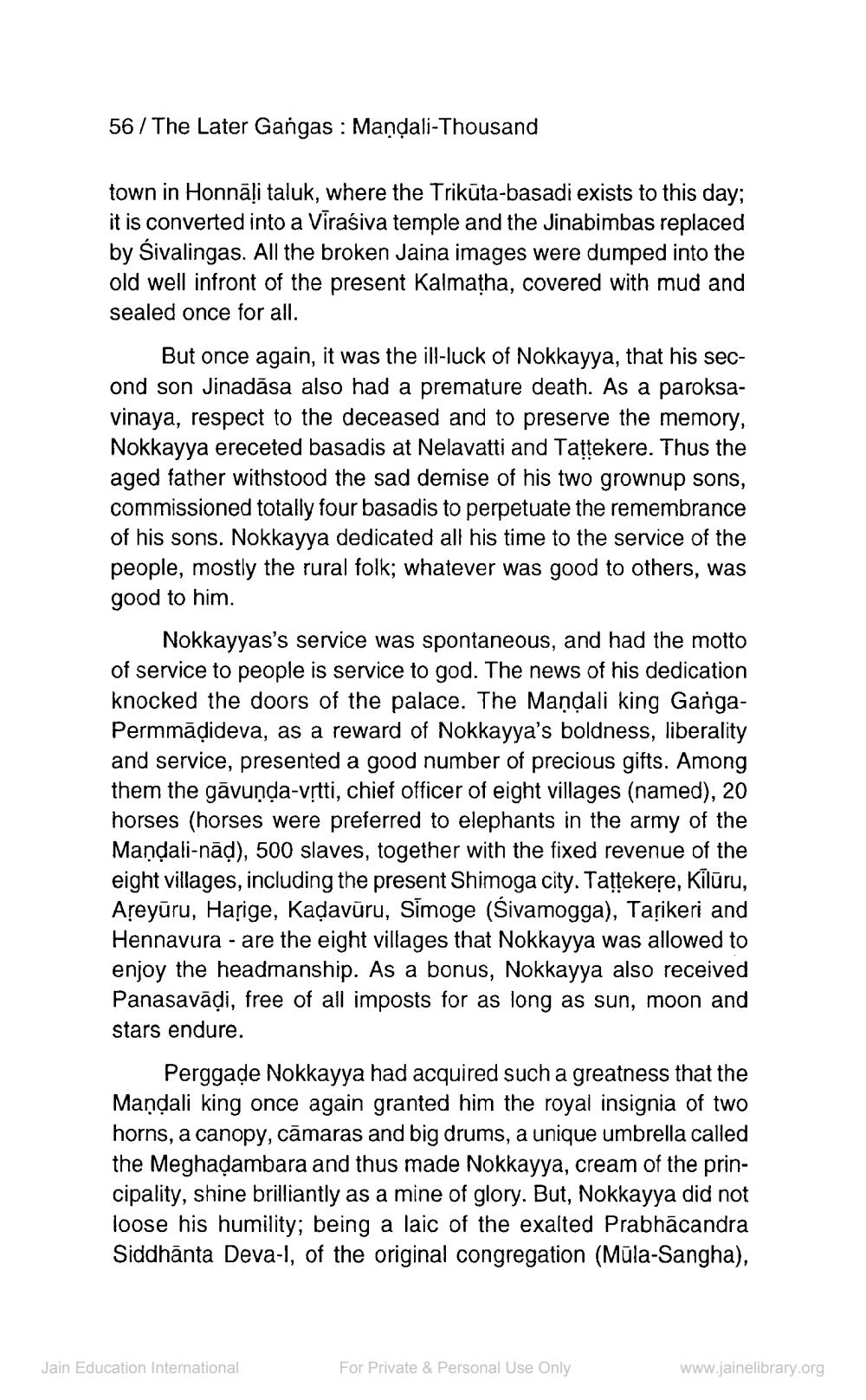________________
56 / The Later Gangas : Mandali-Thousand
town in Honnāļi taluk, where the Trikūta-basadi exists to this day; it is converted into a Viraśiva temple and the Jinabimbas replaced by Sivalingas. All the broken Jaina images were dumped into the old well infront of the present Kalmatha, covered with mud and sealed once for all.
But once again, it was the ill-luck of Nokkayya, that his second son Jinadāsa also had a premature death. As a paroksavinaya, respect to the deceased and to preserve the memory, Nokkayya ereceted basadis at Nelavatti and Tattekere. Thus the aged father withstood the sad demise of his two grownup sons, commissioned totally four basadis to perpetuate the remembrance of his sons. Nokkayya dedicated all his time to the service of the people, mostly the rural folk; whatever was good to others, was good to him.
Nokkayyas's service was spontaneous, and had the motto of service to people is service to god. The news of his dedication knocked the doors of the palace. The Mandali king GangaPermmādideva, as a reward of Nokkayya's boldness, liberality and service, presented a good number of precious gifts. Among them the gāvunda-vịtti, chief officer of eight villages (named), 20 horses (horses were preferred to elephants in the army of the Mandali-nād), 500 slaves, together with the fixed revenue of the eight villages, including the present Shimoga city. Tattekere, Kilūru, Areyūru, Harige, Kadavūru, Simoge (Sivamogga), Tarikeri and Hennavura - are the eight villages that Nokkayya was allowed to enjoy the headmanship. As a bonus, Nokkayya also received Panasavādi, free of all imposts for as long as sun, moon and stars endure.
Perggade Nokkayya had acquired such a greatness that the Mandali king once again granted him the royal insignia of two horns, a canopy, cāmaras and big drums, a unique umbrella called the Meghadambara and thus made Nokkayya, cream of the principality, shine brilliantly as a mine of glory. But, Nokkayya did not loose his humility; being a laic of the exalted Prabhācandra Siddhānta Deva-l, of the original congregation (Müla-Sangha),
Jain Education International
For Private & Personal Use Only
www.jainelibrary.org




